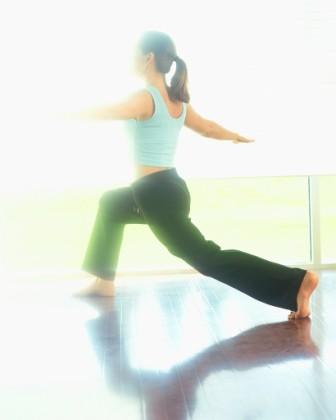Exercise and Immune Function
We all know that regular exercise can tone your body and help you to lose excess weight. Additional benefits include the release of endorphins, reduction in stress, improvement in sleep and mood, reduction in blood pressure, and an increase in feeling of wellbeing. But did you know that activities such as brisk walking, tai chi and yoga on a daily basis can result in fewer colds?
Mild to moderate exercise has been shown to have a beneficial effect on immune function. This type of activity boosts the number of certain immune cells and this translates into positive changes in function. The body releases hormones such as endorphins and enkephalins during exercise and these hormones help regulate immune function.

It has been suggested that physically active people tend to get sick less often than their sedentary counterparts. The research shows that exercisers have fewer incidences of colds and flues due to positive changes in the immune system during mild to moderate activity. But when testing competitive endurance athletes and those who take part in intense or heavy bouts of exercise, the results were not favourable.
Researchers found that high intensity exercise is associated with muscle cell damage and inflammation and leads to low measures of immunoglobulins, a decrease in natural killer cell activity, and a reduction in neutrophil phagocytic activity – in other words, a reduction in immune function. They found a J-curve relationship between intensity of exercise and risk of upper respiratory tract infections (URTI) and suggest that this risk remains elevated during training and 1-2 weeks following participation in endurance sports. This may be due to the release of stress hormones which have an immuno suppressive effect. So those individuals training for a marathon, ironman or other endurance event should take extra precautions to ensure optimal health.
If engaging in prolonged bouts of intense training, make sure to get sufficient rest, proper nutrition and adequate hydration immediately following your training sessions.
What happens if you get sick? Should you continue to exercise?
Mild to moderate exercise has a beneficial effect on immune function and therefore it is okay to continue exercising during a common cold.
If your symptoms are those of a common cold and exist primarily above the neck, you can resume intense training a few days after resolution of the symptoms.
If you have flu-like symptoms such as fever, fatigue, muscle aches, and swollen lymph glands, it’s best not to exercise until symptoms have resolved and intense bouts of exercise should be postponed for an additional 2-4 weeks.
Things you can do to keep your immune system healthy:
- Engage in regular physical activity (mild to moderate exercise)
- Eat a well-balanced diet
- Get an adequate amount of sleep each night
- Keep stress to a minimum
Note: if you’re on a very low calorie diet or achieving rapid weight reduction, your immune function will be suppressed. To maintain optimal immune function, try to lose weight gradually and stay clear of the very low calorie diets.
Return from Exercise and Immune Function to My Health Site Home Page
The contents of this site are the opinions of Michele Tse unless otherwise noted. The information on this site is intended for general informational and educational purposes only and is not a substitute for professional medical or nutritional advice or treatment. Please consult your health care practitioner before beginning any fitness program.